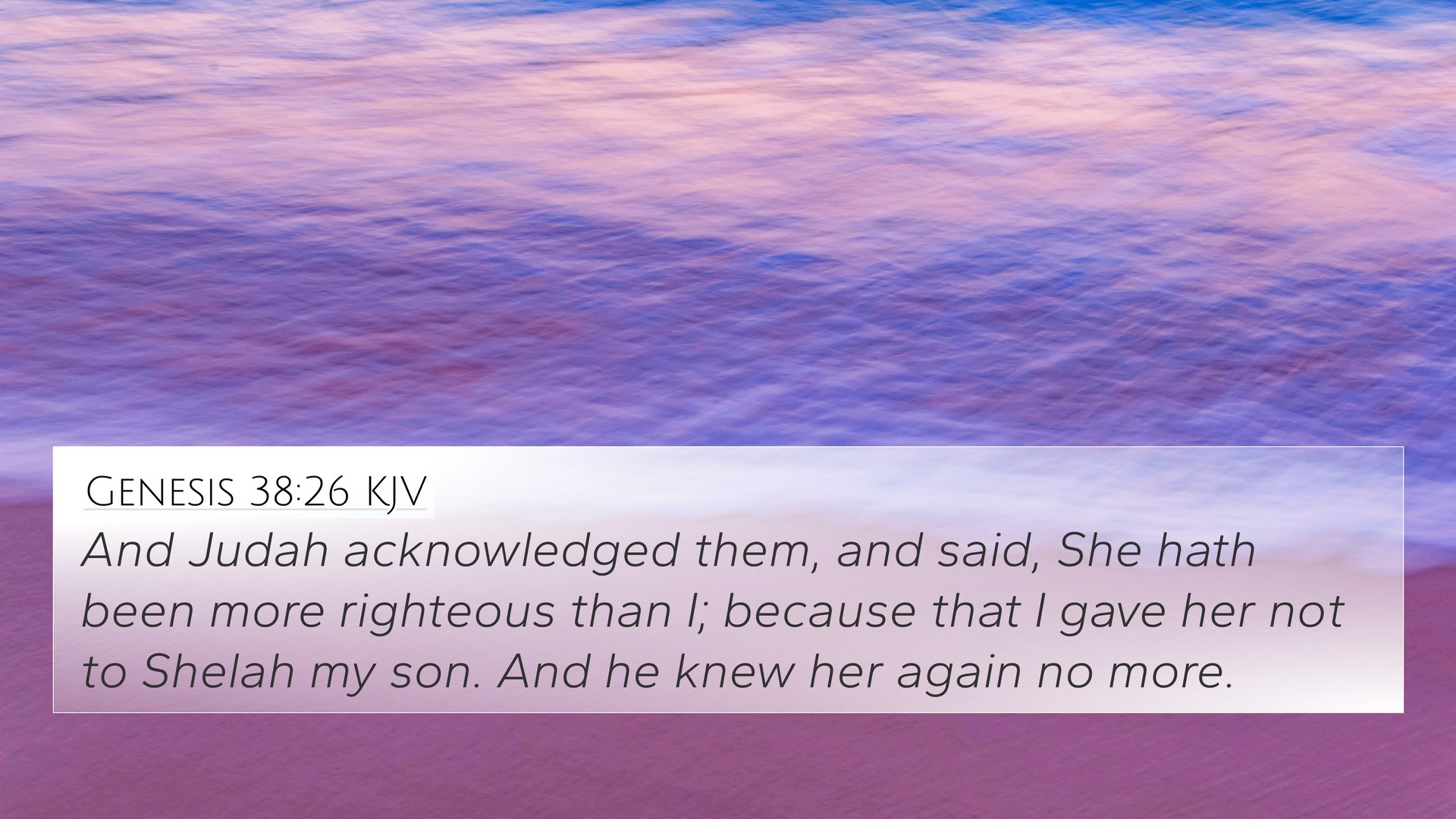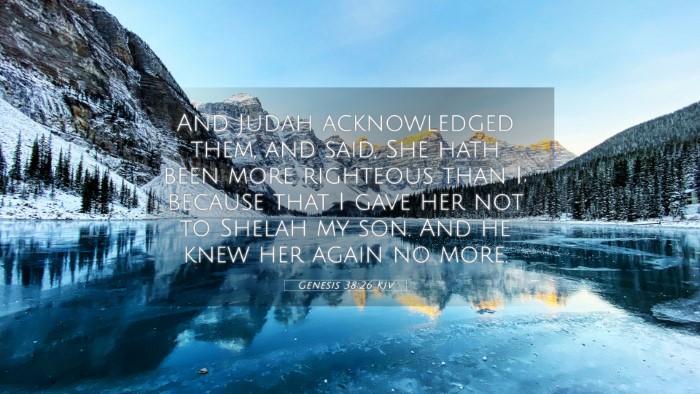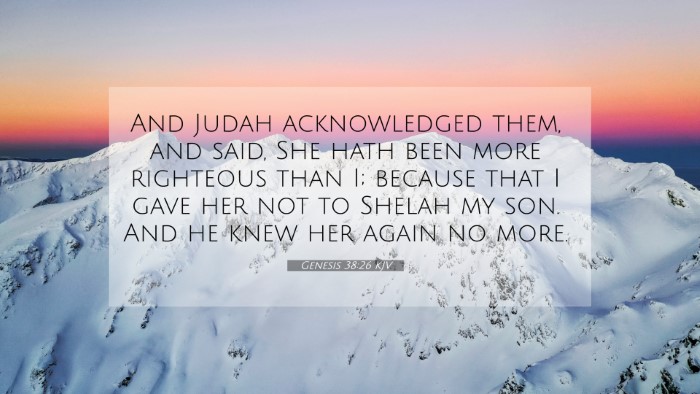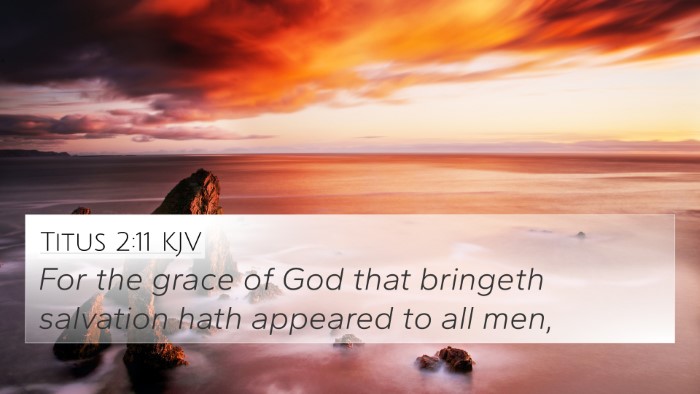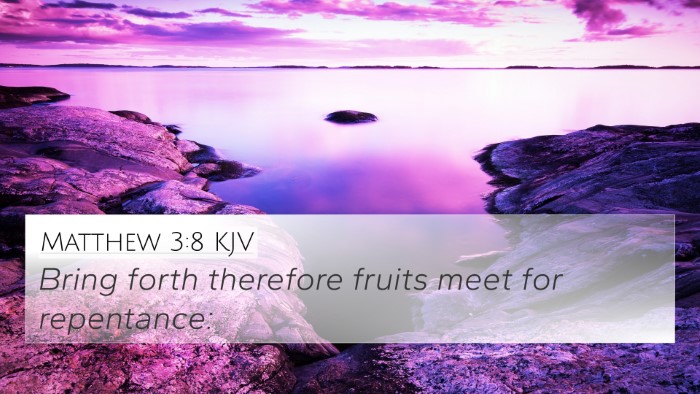This section features a detailed cross-reference designed to enrich your understanding of the Scriptures.
Below, you will find carefully selected verses that echo the themes and teachings related to Genesis 38:26 KJV. Click on any image to explore detailed analyses of related Bible verses and uncover deeper theological insights.
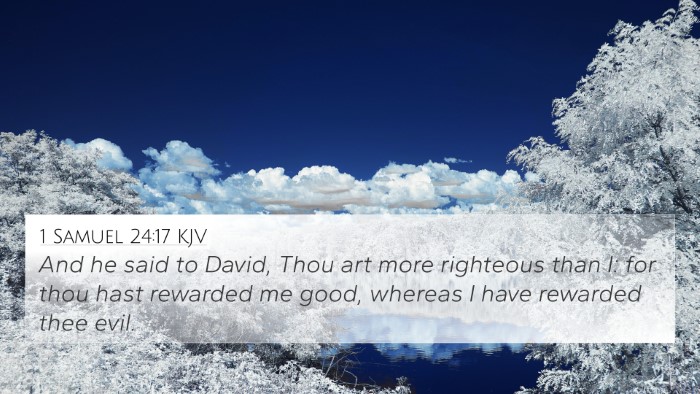 1 Samuel 24:17 (KJV) »
1 Samuel 24:17 (KJV) »
And he said to David, Thou art more righteous than I: for thou hast rewarded me good, whereas I have rewarded thee evil.
 1 Peter 4:2 (KJV) »
1 Peter 4:2 (KJV) »
That he no longer should live the rest of his time in the flesh to the lusts of men, but to the will of God.
 John 8:9 (KJV) »
John 8:9 (KJV) »
And they which heard it, being convicted by their own conscience, went out one by one, beginning at the eldest, even unto the last: and Jesus was left alone, and the woman standing in the midst.
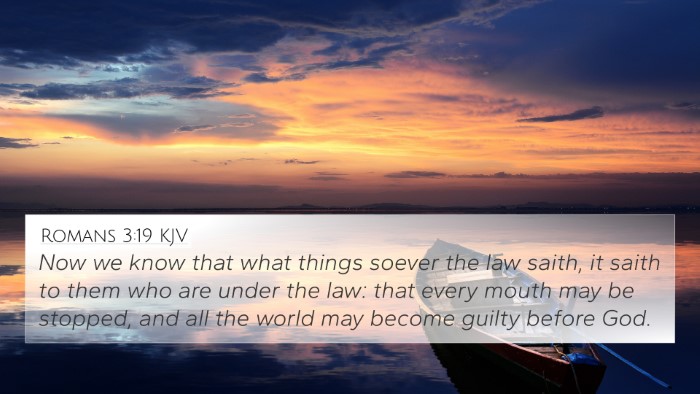 Romans 3:19 (KJV) »
Romans 3:19 (KJV) »
Now we know that what things soever the law saith, it saith to them who are under the law: that every mouth may be stopped, and all the world may become guilty before God.
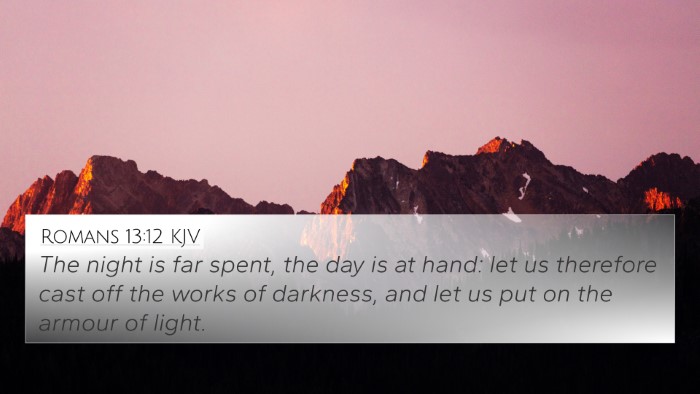 Romans 13:12 (KJV) »
Romans 13:12 (KJV) »
The night is far spent, the day is at hand: let us therefore cast off the works of darkness, and let us put on the armour of light.
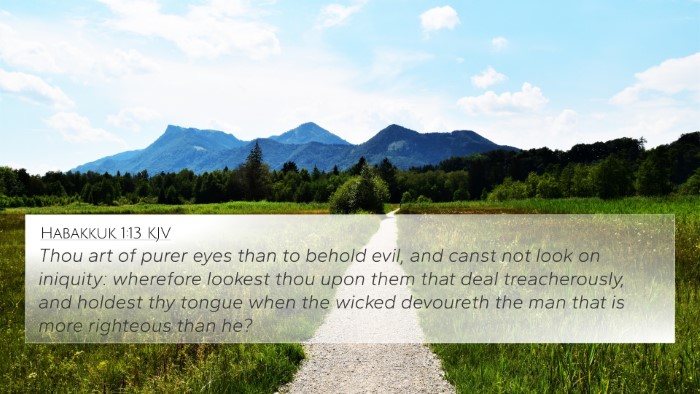 Habakkuk 1:13 (KJV) »
Habakkuk 1:13 (KJV) »
Thou art of purer eyes than to behold evil, and canst not look on iniquity: wherefore lookest thou upon them that deal treacherously, and holdest thy tongue when the wicked devoureth the man that is more righteous than he?
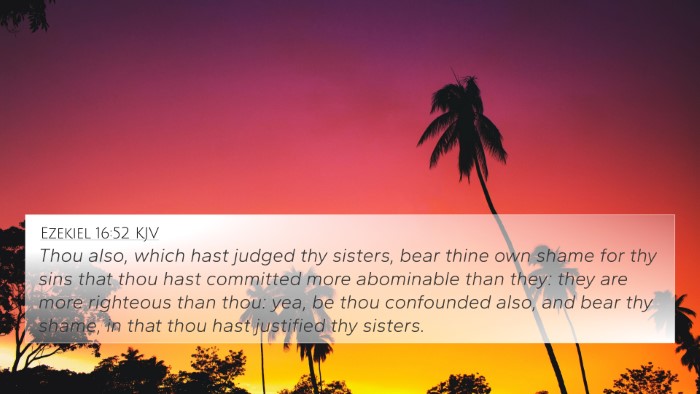 Ezekiel 16:52 (KJV) »
Ezekiel 16:52 (KJV) »
Thou also, which hast judged thy sisters, bear thine own shame for thy sins that thou hast committed more abominable than they: they are more righteous than thou: yea, be thou confounded also, and bear thy shame, in that thou hast justified thy sisters.
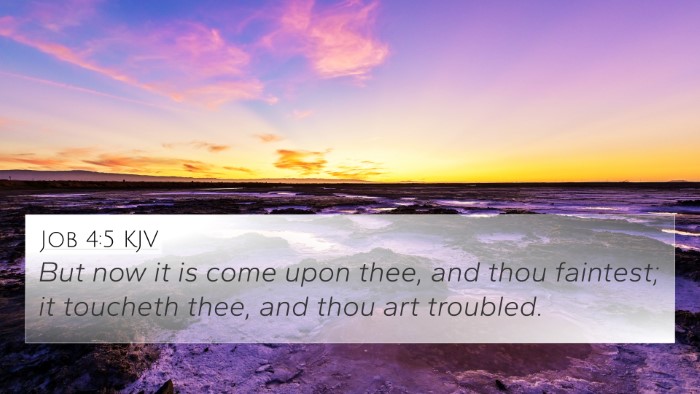 Job 4:5 (KJV) »
Job 4:5 (KJV) »
But now it is come upon thee, and thou faintest; it toucheth thee, and thou art troubled.
 Job 40:5 (KJV) »
Job 40:5 (KJV) »
Once have I spoken; but I will not answer: yea, twice; but I will proceed no further.
 Job 34:31 (KJV) »
Job 34:31 (KJV) »
Surely it is meet to be said unto God, I have borne chastisement, I will not offend any more:
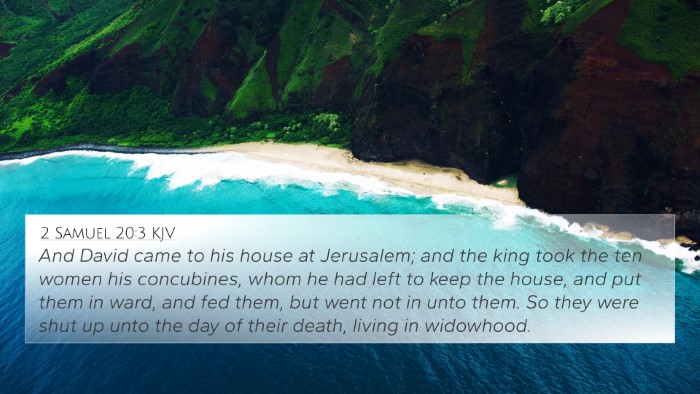 2 Samuel 20:3 (KJV) »
2 Samuel 20:3 (KJV) »
And David came to his house at Jerusalem; and the king took the ten women his concubines, whom he had left to keep the house, and put them in ward, and fed them, but went not in unto them. So they were shut up unto the day of their death, living in widowhood.
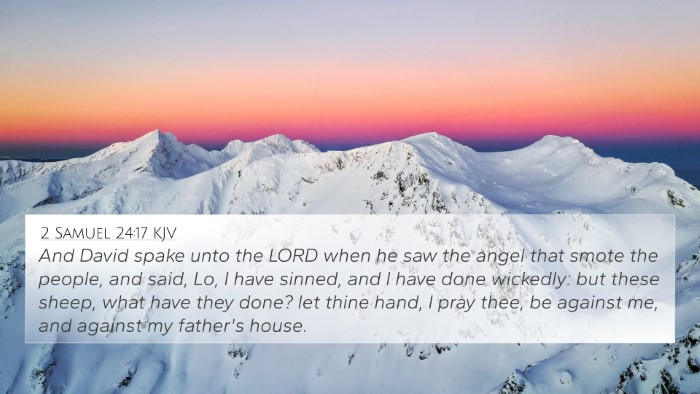 2 Samuel 24:17 (KJV) »
2 Samuel 24:17 (KJV) »
And David spake unto the LORD when he saw the angel that smote the people, and said, Lo, I have sinned, and I have done wickedly: but these sheep, what have they done? let thine hand, I pray thee, be against me, and against my father's house.
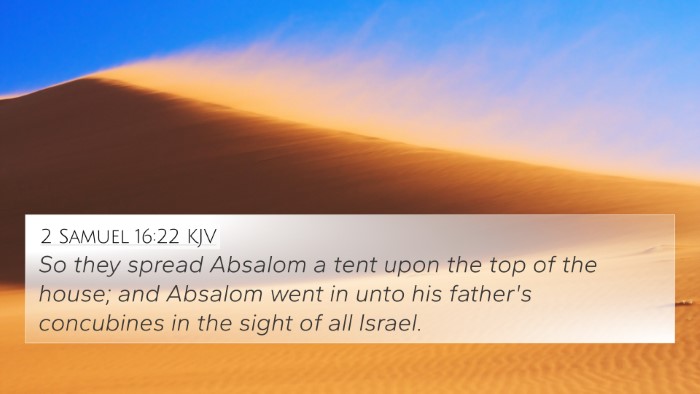 2 Samuel 16:22 (KJV) »
2 Samuel 16:22 (KJV) »
So they spread Absalom a tent upon the top of the house; and Absalom went in unto his father's concubines in the sight of all Israel.
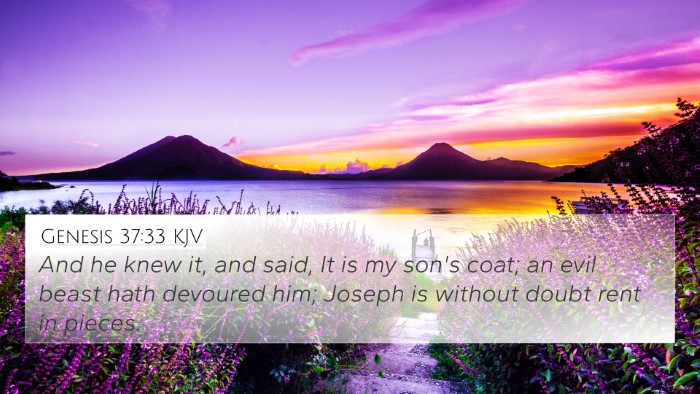 Genesis 37:33 (KJV) »
Genesis 37:33 (KJV) »
And he knew it, and said, It is my son's coat; an evil beast hath devoured him; Joseph is without doubt rent in pieces.
 Genesis 38:14 (KJV) »
Genesis 38:14 (KJV) »
And she put her widow's garments off from her, and covered her with a vail, and wrapped herself, and sat in an open place, which is by the way to Timnath; for she saw that Shelah was grown, and she was not given unto him to wife.
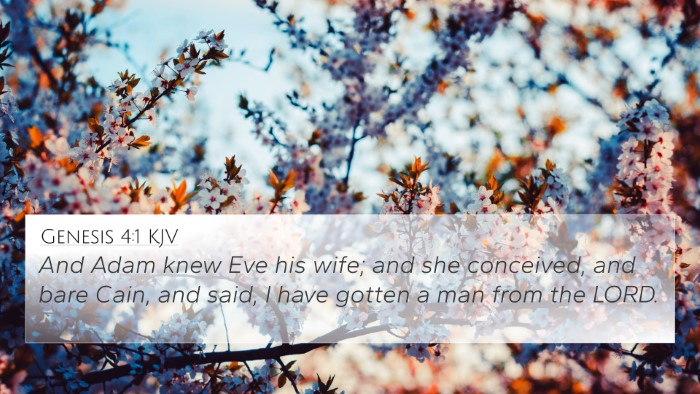 Genesis 4:1 (KJV) »
Genesis 4:1 (KJV) »
And Adam knew Eve his wife; and she conceived, and bare Cain, and said, I have gotten a man from the LORD.
